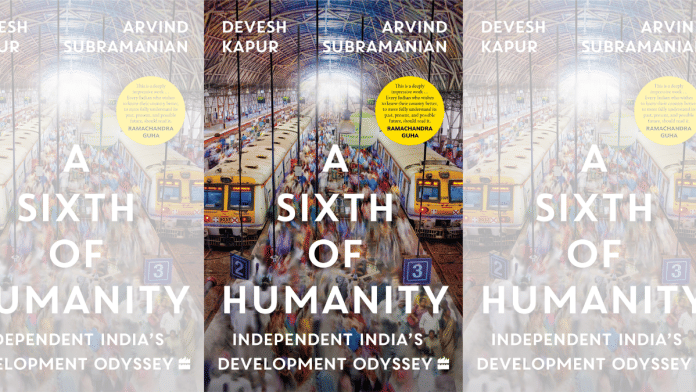New Delhi: ‘A Sixth of Humanity—Independent India’s Development Odyssey’ by Devesh Kapur and Arivind Subramanian opens by framing the question of the development state. It traces the fateful choices that shaped post-colonial development trajectories of India, setting out the book’s historical and institutional frame.
The book unpacks the machinery of state-led development including fiscal instruments and redistributive programmes, which is the text’s extended treatment of the “Kamadhenu” fiscal model, joint-family banking and institutional arrangements that mediate redistribution, as well as chapters that examine social policy, labour and capability formation through empirical case studies.
In its concluding parts the volume surfaces paradoxes of the development state, reflects on nation-building, hierarchies and social cleavages, and peers ahead to the dilemmas facing democratic development, arguing for institutional recalibration to strengthen human capabilities and social inclusion rather than entrench inequality.
Published by HarperCollins, ‘A Sixth of Humanity—Independent India’s Development Odyssey’ will be released on 7 November on SoftCover, ThePrint’s online platform for launching non-fiction books.
Devesh Kapur is the Starr Foundation Professor of South Asia Studies at Johns Hopkins University’s School of Advanced International Studies. He earlier taught at Harvard University and the University of Pennsylvania. His research focuses on the political economy of development. His recent books include The Other One Percent: Indians in America, Internal Security in India: Violence, Order and the State, and The Oxford Handbook of Higher Education in Asia and the Pacific.
Arvind Subramanian is a Senior Fellow at the Peterson Institute for International Economics, Washington DC, and a former Chief Economic Adviser to the Government of India. He has worked with the International Monetary Fund and the General Agreement on Tariffs and Trade, and has taught at Ashoka, Brown, Harvard, and Johns Hopkins universities. In 2011, Foreign Policy magazine named him among the Top 100 Global Thinkers. His books include Eclipse: Living in the Shadow of China’s Economic Dominance and Of Counsel: The Challenges of the Modi–Jaitley Economy.
Also Read: New book delves into the Indian Air Force’s daring operations






